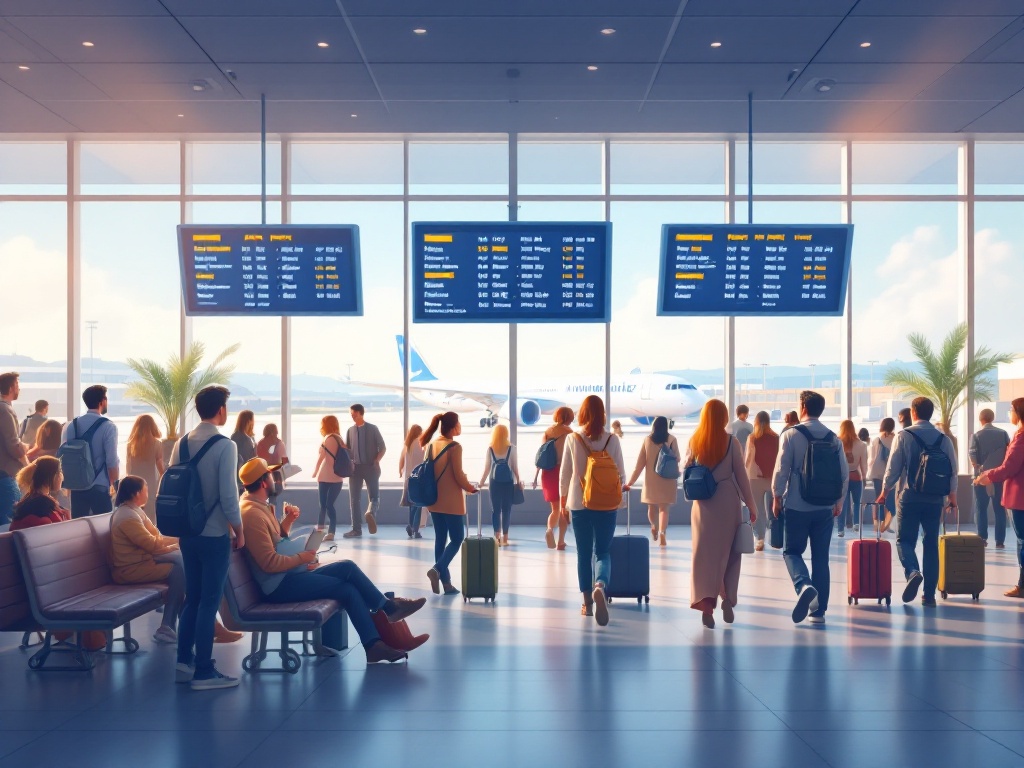Choosing the Right Djibouti eVisa: Types and Purposes
Find the Djibouti eVisa that suits your specific travel needs and intentions.
Overview of Available eVisa Categories
The government of Djibouti offers electronic visas primarily catering to common short-term travel intentions. Selecting the correct eVisa type is crucial as it aligns with the purpose of your visit and dictates the activities you are permitted to undertake while in the country.
The main categories available through the online eVisa system generally include Tourist eVisa, Business eVisa, and Transit eVisa. Each of these has specific conditions regarding its validity period, the maximum duration of stay permitted, the number of entries allowed, and the documentation required for the application. It is essential to understand these distinctions to ensure a smooth application process and compliant travel.
Detailed Look at Common Djibouti eVisa Types

Tourist eVisa
This is typically the most common type of eVisa, intended for individuals traveling to Djibouti for purposes such as:
- Leisure, recreation, and holidays
- Sightseeing and exploring Djibouti's natural and cultural attractions (e.g., Lake Assal, Lake Abbe, Moucha Islands)
- Visiting friends or relatives residing in Djibouti
Typical Permitted Stay: Usually allows for a stay of up to 30 days.
Entry Type: Generally single-entry.
Key Consideration: This visa does not permit any form of paid employment or formal, long-term business activities in Djibouti. It is strictly for tourism and non-remunerated activities.
Apply for Tourist eVisa
Business eVisa
The business eVisa is designed for individuals visiting Djibouti for short-term professional or commercial reasons, such as:
- Attending meetings, conferences, workshops, or seminars
- Exploring business opportunities, potential investments, or partnerships
- Negotiating contracts or engaging in trade discussions
- Undertaking short-term professional training (that is unpaid by a Djiboutian entity)
Typical Permitted Stay: Usually allows for a stay of up to 30 days, though this can sometimes vary based on the specifics of the business engagement.
Entry Type: Typically single-entry for standard online applications. Specific, longer-term business needs might require different visa types obtained through an embassy.
Key Consideration: This visa strictly does not authorize paid employment or taking up a salaried position within Djibouti. An invitation letter from a registered company or organization in Djibouti detailing the purpose and duration of the business visit is often a required document for this visa type.
Apply for Business eVisa
Transit eVisa
A transit eVisa is specifically for travelers who need to pass through Djibouti en route to another country. This is applicable if:
- You have a layover in Djibouti and wish to leave the airport transit area (e.g., for a short city visit or overnight stay).
- You are transiting overland through Djibouti to reach a neighboring country.
Typical Permitted Stay: Usually allows for a very short stay, often limited to 24 to 72 hours, strictly for the purpose of transit.
Entry Type: Always single-entry.
Key Consideration: Proof of onward travel (e.g., a confirmed flight ticket to the final destination) is almost always a mandatory requirement for a transit eVisa. You are not permitted to engage in tourism (beyond incidental sightseeing during transit) or business activities on this type of visa.
Apply for Transit eVisaUnderstanding Entry Types: Single-Entry vs. Multiple-Entry
It's important to understand the entry conditions associated with your Djibouti eVisa, as this impacts your travel flexibility.
Most standard Djibouti eVisas obtained through the online portal are single-entry. This means that once you enter Djibouti and then depart (even for a brief period to a neighboring country), your visa is considered used and becomes void for re-entry. To re-enter Djibouti, you would need to apply for and obtain a new eVisa.
While some RAG file entries mention the possibility of multiple-entry eVisas, this may refer to specific visa types, longer-term visas, or circumstances not always available or clearly defined via the standard online eVisa platform. If your travel plans definitively require multiple entries into Djibouti within a short period, it is crucial to:
- Carefully check the options and visa descriptions available on the official eVisa application portal at the time of your application.
- If a multiple-entry eVisa is not explicitly offered for your nationality and purpose, you may need to apply for a traditional visa through a Djibouti embassy or consulate, as they might offer visa types with multiple entry provisions.
Always confirm the entry type (single or multiple) specified on your approved eVisa document. For more details on visa validity and permitted stay, please see our eVisa Validity, Stay & Extension page.
How to Choose the Right Djibouti eVisa Type
Selecting the correct eVisa type is essential for a smooth application process and compliant entry into Djibouti. Consider the following factors carefully:
- Primary Purpose of Your Visit: What is the main reason for your travel to Djibouti? Is it for tourism, attending business meetings, or simply passing through to another destination? Your main reason for travel should be the primary guide for your choice.
- Intended Duration of Stay: How long do you plan to stay in Djibouti? Ensure the visa type you select aligns with your intended length of visit. Most eVisas are for short stays (typically up to 30 days). If you need a longer stay, an eVisa might not be the appropriate route.
- Required Documents: Different visa types may have slightly different documentation requirements. For example, a business eVisa often requires an invitation letter, which is not needed for a tourist eVisa. Ensure you can provide all necessary documents for the chosen visa type. Check the Required Documents page for a general list.
- Eligibility Criteria: Confirm that you meet all eligibility criteria for the specific visa type you are considering, including nationality and passport validity.
If you are unsure which eVisa type is most appropriate for your situation after reviewing this information, it is advisable to consult official sources or contact the eVisa support services for clarification before submitting your application. Applying for the wrong visa type can lead to rejection or issues upon arrival.
Select Your eVisa and Apply
Once you've identified the correct eVisa type for your travel needs, you can confidently proceed with the online application.
Apply for Djibouti eVisa